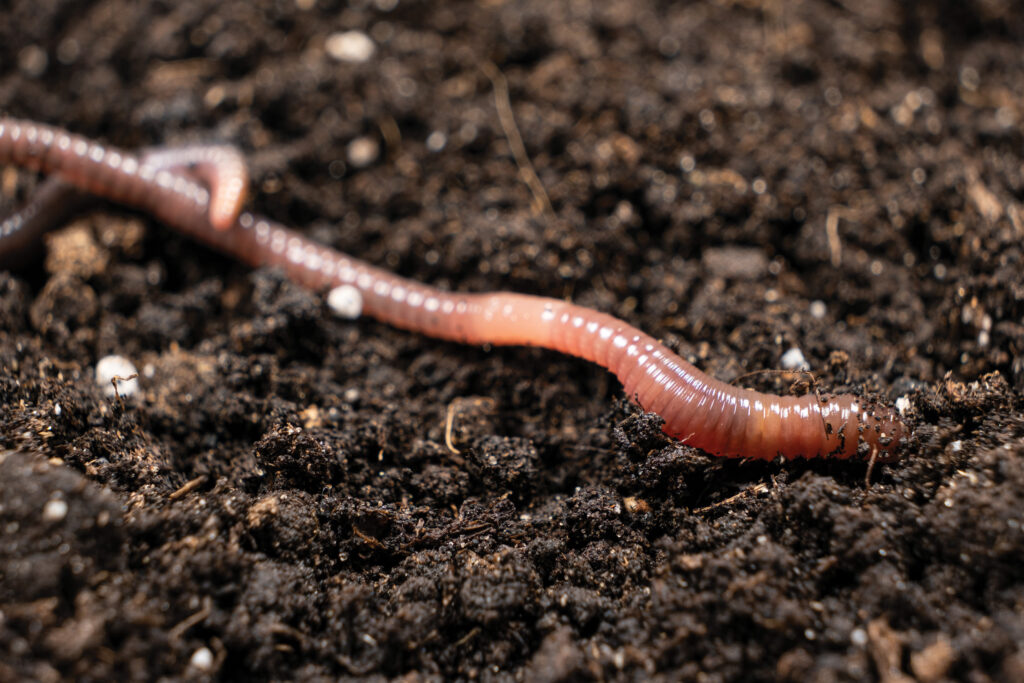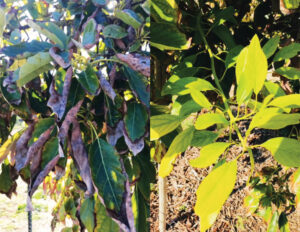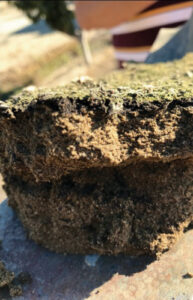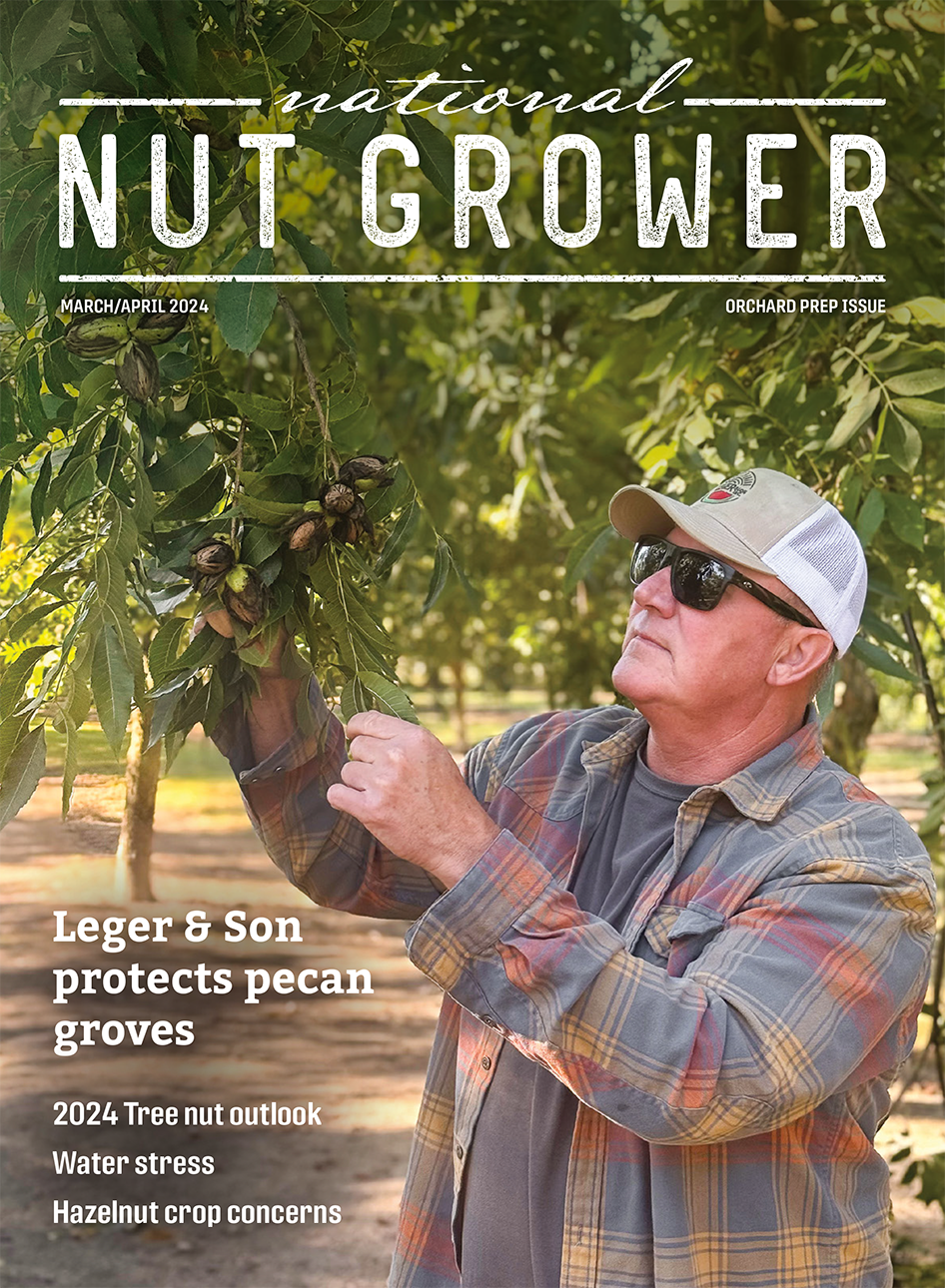
May/June 2023
Worms to the rescue
These silent laborers promote soil health, lessen pests and disease
The humble earthworm can play a big role in reinvigorating soil to create healthy crops. Earthworms can make unhealthy soil healthy, said George Hahn, owner and president of Worm Gold/ California Vermiculture.
“Go to a redwood forest or any forest,” Hahn said. “There are no bags of fertilizer behind those trees. How did they get enough nutrition to grow to the size they are?”
The answer, he said, is earthworms.
Organic enrichment

Earthworms provide the diversity of more than 30,000 different biological species, including bacteria, fungi, protozoa and beneficial nematodes, and promote the development of “soil food webs.” Healthy soil is teeming with tiny organisms that decompose organic material and enrich the soil, creating soil food webs. Because soil is a living organism, growers must understand soil biology, Hahn said. The Cardiff, California-based supplier said his organic soil solutions can help reduce soil salts and improve soil structure.
Applications of one ton an acre of earthworm castings on rootzones and spread throughout fields could provide a 10% to 20% increase in yield. Alternatively, brewing a mix kit of WormGold Plus, an organic non-toxic mixture consisting of pure worm castings (92%), fossilized kelp (for calcium), rock mineral (for mineral balance) and other components for 16 to 24 hours would produce four billion earthworms following a biological multiplication of the earthworm produced biology.
By delivering the beneficial excrement through castings, earthworms, produced from fertilized eggs, replenish soil nutrition. The process can lower soil salts, eliminate soil compaction and improve soil penetration as well as increase the soil’s carbon sequestration.
Vermiculture also provides insect repellency and disease prevention, allowing trees and plants to mature faster plus extends crop shelf life.
Insect repellent
Hahn said he discovered how the worm castings can repel insects through participating in a USDA study of California pecans. The grove didn’t experience any pest or disease issues and the grower witnessed a 400% increase in yield as well as eliminating pecan weevil and pecan scab threats, Hahn said.
“We found that over the past 15 years, every single insect pest when we apply this won’t touch the plant,” Hahn said.
Impact on crop production
Additionally, the added nutrition helped eliminate fruit drop by the end of the four-year study, he said.
“We didn’t recognize it at the time, but what happened with those pecans was they went from 80% fruit drop to zero at the end of four years,” Hahn said.
In a test on almonds, Hahn said vermiculture was applied to a one-year-old grove with trees 10 feet tall possessing five-inch girths. Compared to an untreated neighboring grove across the street, which grew on the same soil mix with the same trees from the same supplier, that grove’s trees were chest high and about two thumbs in width, a significant difference, he said.
The castings provided fast growth, Hahn said.

“We could’ve been able to harvest in year two, but we were told by a crop advisor that one could never harvest almonds on the second year, so we began harvesting the next (third) year,” he said. “The difference happens when you bring the nutrition delivery biology to the farm.”
The mix includes chitin degraders and cellulose degraders, organisms which excrete chitinase and cellulase and then consume chitin and cellulose fungi. The product can be sprayed and added to irrigation and fertigation systems.
“Think of the Pac Man game, which most of us played at one time or another,” Hahn said. “If a Pac Man string is a cellulose-based fungus, a pythium or a phytophthora, the cellulose-eating bacteria will excrete an enzyme called cellulase, which licks the line and then eats it. When excreted, it’s now a food source for the plant. What’s potentially a pathogen for the plant becomes food. The Pac Man eats it and feeds it to the plant.”
Growers who plant in high salt sand land experience low water retention, with plants using only an inch of 10-acre inches of water applications during the season. The product increases moisture retention from 10% to 20%, reducing irrigation needs by up to 50%, Hahn said. Using vermiculture, the same 10-acre inches could consume 3-acre inches, allowing growers to watch their soil retain moisture and irrigate only when necessary. The earthworms could potentially cut water consumption by two-thirds, Hahn said.
“The increase in recyclers will dramatically increase the plants’ root mass,” Hahn said. “We are sure this will help on that water retention because the roots are now being fed by biology, not just chemical salts.”







